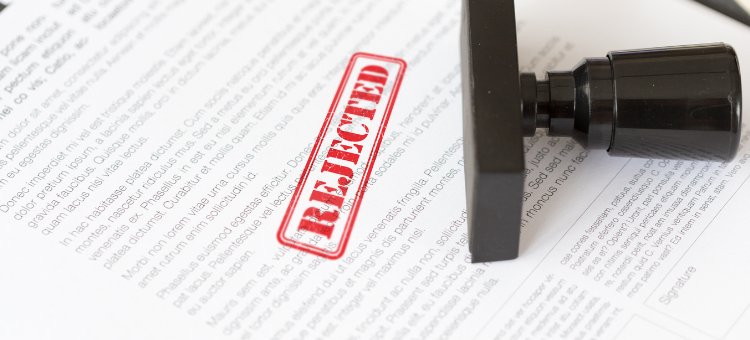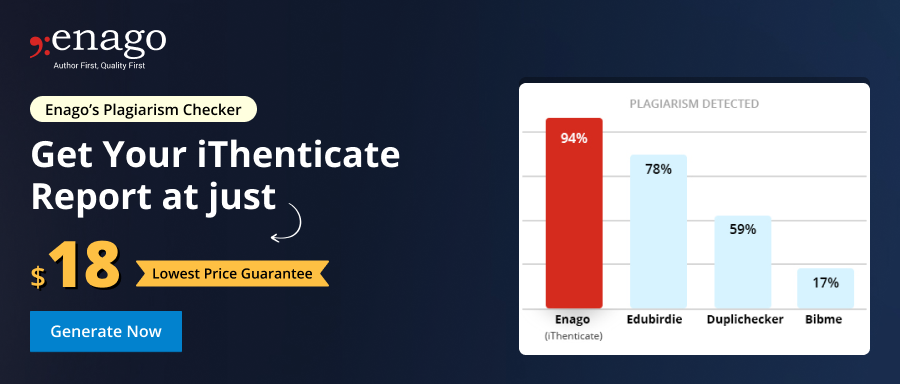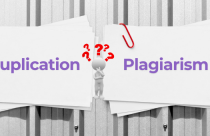Elsevier’s Plagiarism Policy: Top 10 reasons for manuscript rejection

Publishing is a critical part of any successful researcher’s career. But getting published in well-known and high-impact journals can be challenging. All authors feel disappointment when any reputed high-impact journal rejects their article. However, if this has happened to you, you are not alone. High-impact journals such as Elsevier are notorious for having a high rate of rejection. Perhaps you feel you have submitted quality work, only to be notified that your journal article will not even be submitted for Elsevier peer review. In this article, we look at the ten most common reasons for rejection from Elsevier journals and Elsevier’s plagiarism policy. Lets discuss how you can ensure that your submissions make it through.
The Importance of Publishing in Elsevier Journals
Elsevier is a leading publisher of some of the most well-respected science journals in the world. Hence publishing a research in Elsevier will be widely disseminated. Because of this, Elsevier journals are a smart choice for scientific authors. Elsevier journals also have a high journal impact factor overall. This means that publishing in them is more likely to get your article cited. With the rise in predatory and hijacked journals, it is important for any researcher to be careful while submitting their articles.
However, because Elsevier journals have a strong reputation to maintain, they also have strict standards for publishing. Even seemingly minor problems with an article can be a cause for immediate rejection of a submitted article without peer review. More substantive problems can be a cause for rejection during the peer review process. If you wrote an article and it was rejected, what might some of the reasons be? Let us take a look at common causes for article rejection.
Why did My Article Fail to Pass the Technical Screening?
You received an immediate rejection of your article. The most likely cause is that your article had a flaw that caused it to fail the technical screening process. Some common issues that may result in such a scenario are:
Suspicion of Plagiarism
Thanks to technology, there are a number of plagiarism checkers. These plagiarism checkers can scan a manuscript and compare the text to that of published material. You can avoid falling victim to this reason for rejection by conducting your own check before submission online using a plagiarism checking tool. Also make sure you cite your sources accurately and fully.
There is a limit to the plagiarism percentage allowed. For Elsevier, plagiarism percentage is the same as any other journal which is usually less than 10%. Elsevier’s plagiarism policy mentions that the authors should ensure that they have written entirely original works. In case the authors have used the work and/or words of others, they must ensure they have appropriately cited or quoted them.
Your Manuscript is Incomplete
Articles which fail to include critical elements such as authors, key words, tables, figures, or even main text will be rejected as incomplete.
The English is not Coherent Enough for the Peer-review Process
Avoid running into this problem by having a native English speaker (even if you yourself are a native English speaker!) review your manuscript ahead of time for readability and flow. Alternatively, can also try Trinka! Trinka is checks and corrects your writing for advance grammar and language errors. Trinka is specially designed for technical and academic writing. With exclusive features such as style guide preferences, academic tone, word count reduction, and technical phrasing, you can refine your manuscript according to the conventions followed by high-impact journals like Elsevier.
References are Incomplete or Very Old
Elsevier journals require that all citations be complete and recent. Old references imply that your article is not focused on recent developments or cutting-edge science. Incomplete references should be avoided at all costs.
Your Article Doesn’t Fall Within the Aims and Scope of the journal
Make sure to read the Aims and Scope of your target journal carefully and thoroughly. Author instructions for submission also offer helpful guidance for scientists to submit their papers to appropriate journals. Do you know Trinka can help you find a journal that matches your manuscript? Trinka’s built-in Publication Readiness Check evaluates your manuscript on 20+ checkpoints including journal scope match of your targeted journal and suggests additional matching journals as well.
The best way to make certain that your article can pass the technical screening is review, review, review! Review the article yourself, review the article through a plagiarism checker, and have a professional editor review your manuscript for readability and detail. Professional editors will also review your citations to make sure that they are complete and properly formatted. Today’s technological tools available to academics make this process easier than ever before.
Why My Article Faced Rejection?
Even if your article passes the technical screening, you aren’t out of the woods yet. Peer reviewers will assess your article to make sure that it is up to the standard of the Elsevier journal you have submitted to. It is the job of peer reviewers to identify and highlight substantive issues with articles. Some common problems that may result in your article rejection are:
Your Research is Incomplete
Not to be confused with missing technical elements, a manuscript may also be considered incomplete if it ignores important relevant work in the field. A study containing only observations also falls into this category.
Methodological Problems
If journal reviewers find problems with your data collection or analysis methods, this can be a strong basis for rejection. To avoid this type of rejection, follow a solid, empirical methodological method. Ensure you have control groups, and that your study can be replicated by others.
The Research Does Not Support Your Conclusion
The best methodology in the world won’t back up a conclusion that makes too big of a leap. There must be a strong, demonstrable link between your research findings and your conclusions as to what they mean.
Insufficient Novelty
Your paper seems like an extension of existing work without new conclusions, or like an addendum to another paper you’ve written before. Elsevier journals aim to publish new and exciting work, and are not interested in work that is insufficiently novel.
Your Article is Boring
This is related to the point above, but not identical. The reviewers may think that your research will not be of interest to readers of the journal, or that it strays into questions beyond the scope of the field. A good research paper should be focused with a tight and clear scope that meets the journal’s criteria.
Final Words!
If you receive a rejection, don’t give up! Elsevier’s own research finds that 22% of rejected articles end up published in a journal with an equal or higher impact factor than the original target. You can go through Elseviers Plagiarism policy to ensure you can avoid rejection on those grounds. Elsevier offers a handy tool for authors looking for the right place to submit. You can also write an appeal letter if you feel you have been wrongly rejected.
As long as your research is solid and you’ve done all you can to ensure the paper is technically strong, it’s just a matter of finding the right journal. Also, you have to ensure your research work is presented in the best writing quality. Again, Trinka can be your one-stop solution for all these writing requirements. Its robust AI enhances the writing quality holistically, making your paper ready for the global audience.
Have you had an article rejected and then later accepted? What are your tips for submitting successful journal articles to Elsevier? Let us know your thoughts in the comments below.











All the causes are genuine.
Everyone should accept these rules